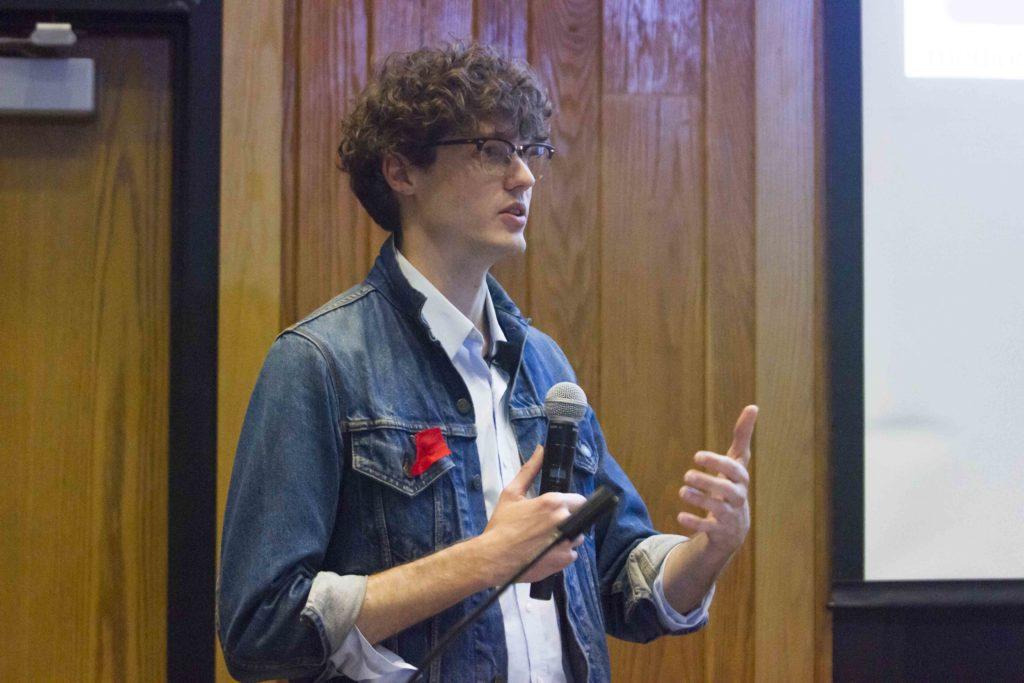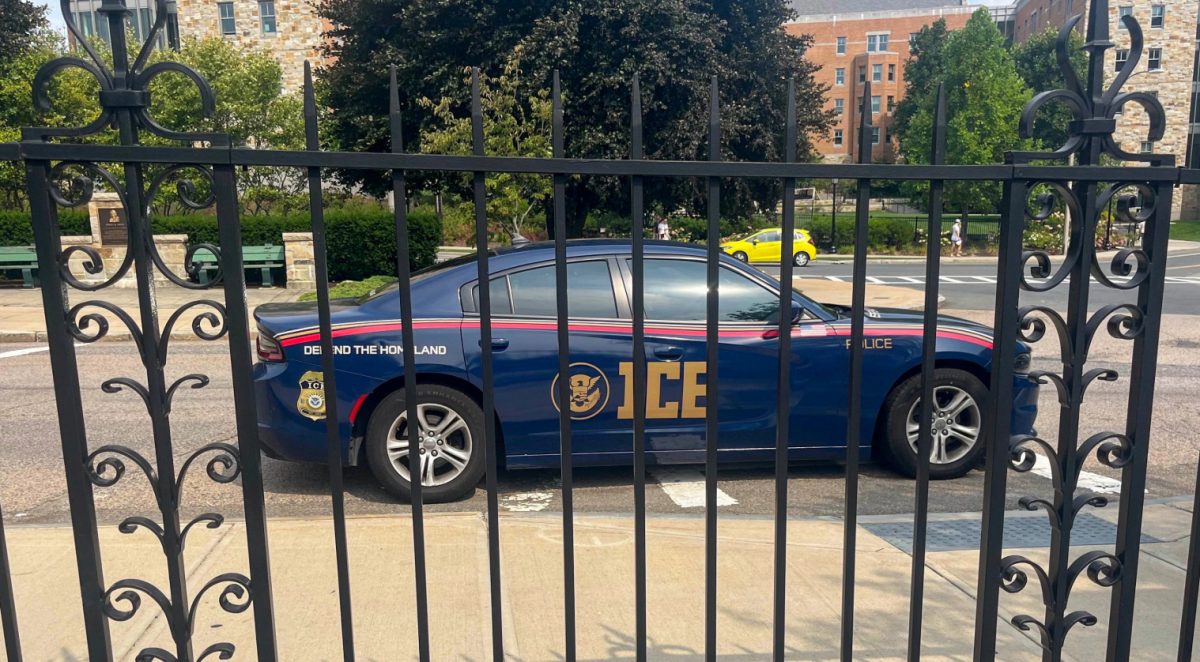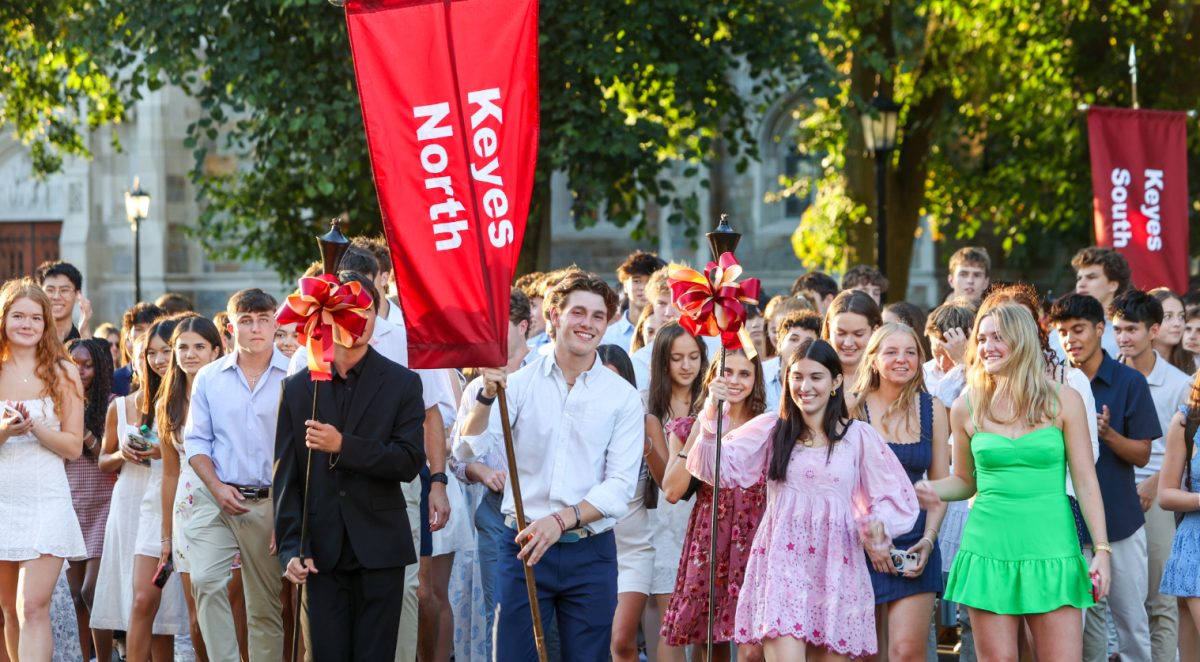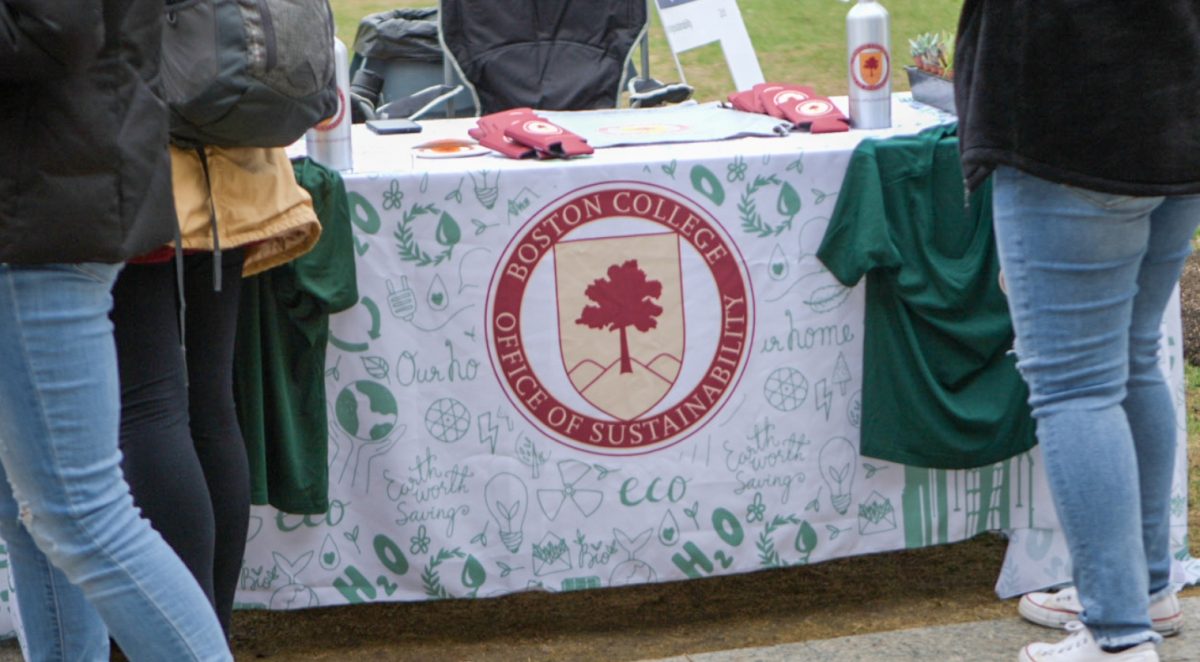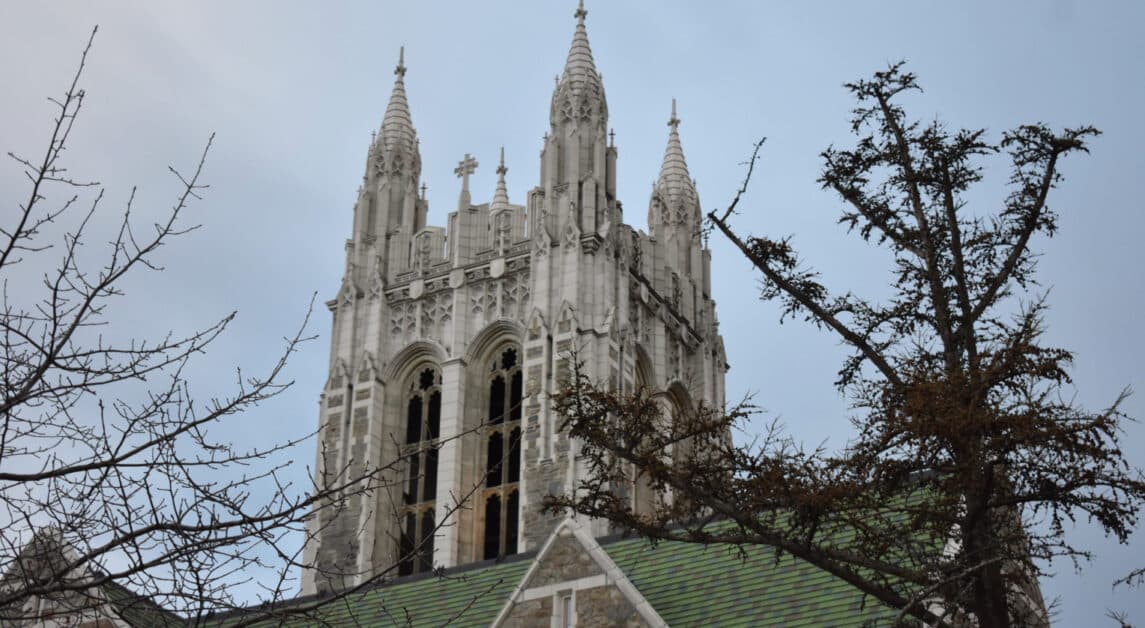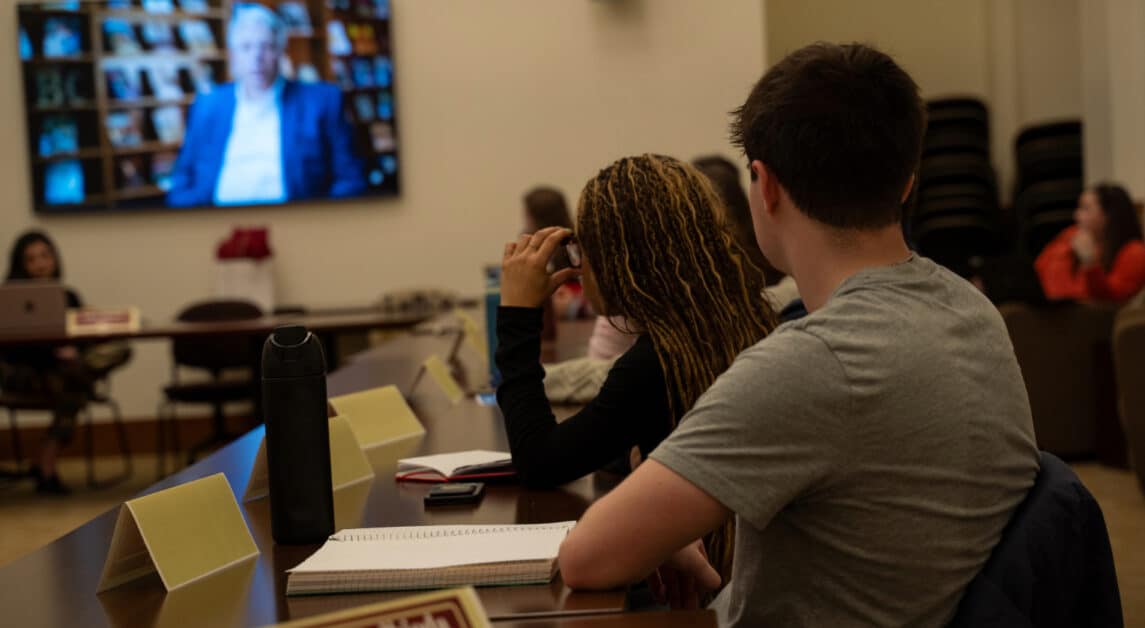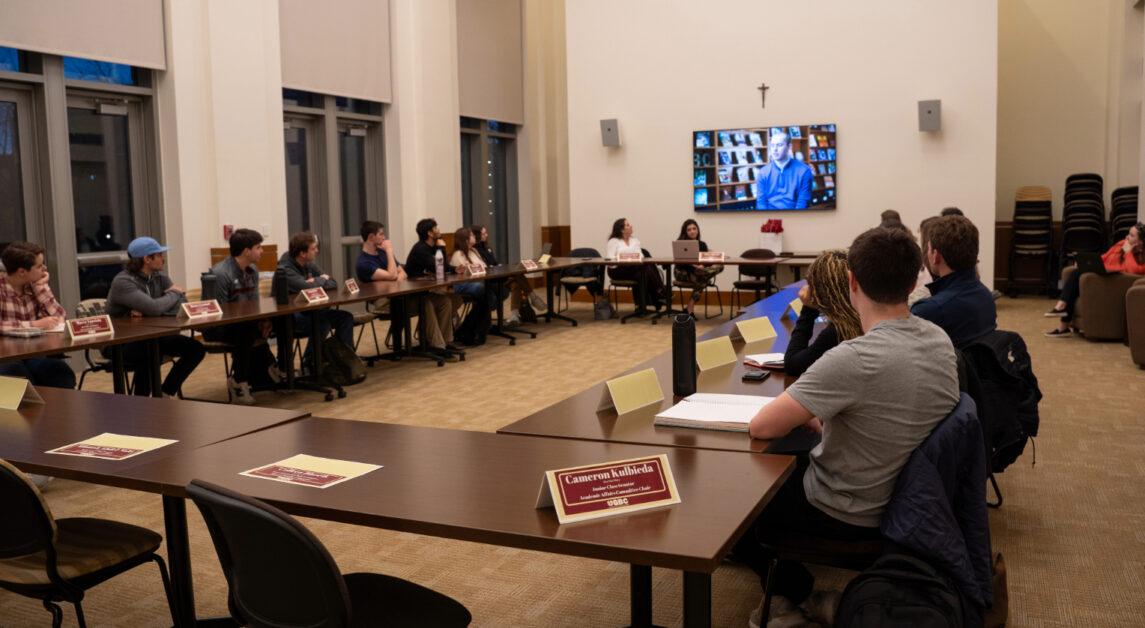Boston College’s Pride Week was filled with events to celebrate and uplift the LGBTQ+ community at BC, despite being only three days long. The week featured an opening event and community dinner, information on protecting trans rights, a queer intersectionality panel, and more.
BC’s Pride Week required tackling complex issues. While students reflected on their identities on campus, conversation frequently turned towards intersectionality, and how the marginalization of different groups can affect the lives of students on campus. Representation came up almost as often: Nearly every event was full of different media recommendations that represent voices from different identities appropriately or are educational about LGBTQ+ issues.
An opening event and community dinner kicked things off, which was sponsored by the GLTBQ Leadership Council (GLC) and co-sponsored by the Dean of Students office.
The next day had tabling for Yes on 3, a movement pushing for voters to support trans rights on the upcoming midterm ballot, and a Queer Intersectionality Panel. The panel featured BC students discussing their identities on campus and giving advice to attendees on a wide array from topics, from being comfortable with themselves to embodying allyship.
“It’s been nice to come to BC and really embrace my identity on campus,” said Elyse Gaertner, MCAS ’21. “Even so, it’s still kind of awkward trying to transition to college because I find myself still explaining my identity more often than not.”
Students on the panel also discussed queer representation in media, and shared their favorite books, music, and podcasts.
“The panelists emphasized the importance of acknowledging overlapping identities in order to both understand and respect people’s personal experiences on campus,” said Jack MacDonald, MCAS ’21. “GLC did a great job of encouraging the discussion of this topic among the student body.”
The next day, Spectrum, an LGBTQ+ student support group in the BC School of Social Work, held a Trans 101 event. It was centered around educating other graduate students on the basics of trans identity and how to be more trans-inclusive in clinical care settings. The workshop was led by presenters Claire Geruson, SSW ’19, and Clayton Lightfoot, SSW ’19, and featured guest speakers from the Fenway Institute, the research branch of Fenway Health, Camp Aranu’tiq, and the Boston College School of Theology and Ministry.
The workshop covered trans issues from supporting children at summer camps to necessary considerations in regards to caring for the aging trans community, as well as including book raffles and a question and answer session. Slides included information on non-binary pronouns, trans-competent intake forms, the social and economic cost of medical/social transitions, and much more.
The speakers from the Fenway Institute also presented about some current research studies that aim to gather more data and explore more ways to support trans and queer health.
The week concluded with a closing ceremony hosted by the GLC. The event featured Rubén Gil—whose pronouns are they/he—an activist who works in the trans community of color. They discussed issues central to the xicanx movement, the importance of oral tradition in marginalized communities, and ally-ship and accomplice-ship. They then answered questions from attendees, and talked about the issue of burn out in activists, specifically delving into how necessary self-care is in the movement to promote social change.
The events of pride week focused on a range of issues affecting the LGBTQ+ community, as well as other marginalized groups. One major current issue that was brought up many times by separate groups was Yes on 3, which will determine whether current protections for trans individuals in public spaces will remain in place. This upcoming midterm ballot question has also meant that activist groups are focusing on engaging voting-age students, encouraging them to register to vote.
Featured Image by Kaitlin Meeks / Heights Editor
Correction (10/16/18, 2:11 p.m.): This article originally called the School of Social Work by its old name, the Graduate School of Social Work. It is no longer known by that name, and the article has been corrected to reflect that.

